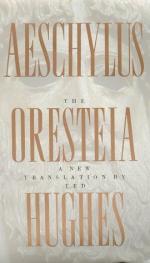|
This section contains 889 words (approx. 3 pages at 300 words per page) |

|
Language, Sound, and Literary Choices in "Thistles"
Summary: In his poem "Thistles," Ted Hughes argues that the world will never live in peace, that wars will always emerge through memories in the way that thistles spring back through seeds. Hughes uses well-fitted, pessimistic diction; expressive similes, metaphors, and other language techniques; and sound devices, syntax, and rhythm to express his view.
Will there ever be a time where the world will live in peace, stripped from all wars and grudges? Ted Hughes partially answers this question through his self-written, extremely evocative poem - `Thistles'. Hughes uses well-fitted diction, expressive similes, metaphors and such language techniques, along with the aid of sound devices, syntax and rhythm to transfer his opinions and ideas to us through words. He doesn't think so - is the response we get in answering the previous question. Hughes tells us that wars will always spring back through memories as thistles do through seeds!
A negative, grim and hostile ambiance, full of tension and anxiety, suspense and war-like experience is set by the poet through these meaningful, consequential words: "splintered", "weapons", "pressure", "decayed", "revengeful", "pale" and "blood." Hughes' selection of diction is exceptional in comparison toward the focus of the poem. He uses old, almost `endangered' words...
|
This section contains 889 words (approx. 3 pages at 300 words per page) |

|


